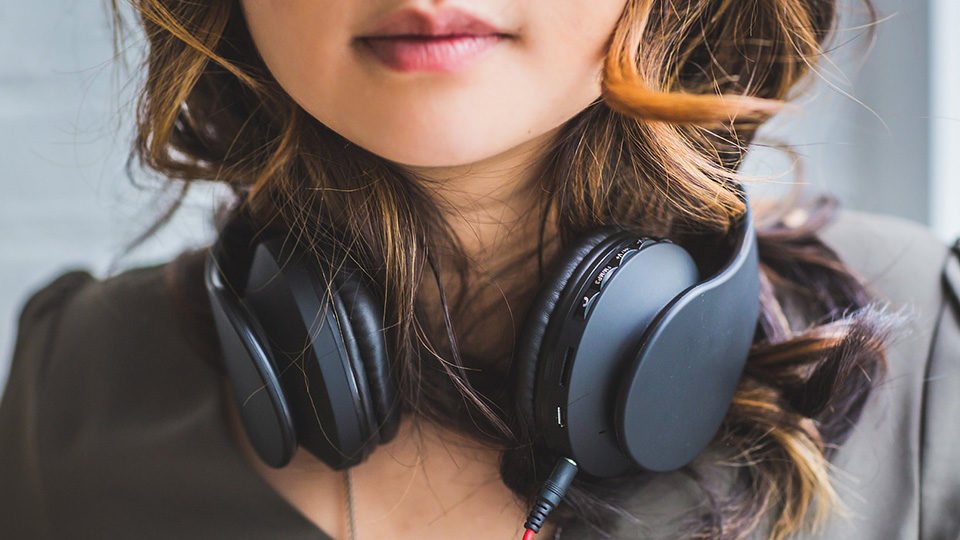It was during the 2016 U.S. election that Leah-Simone Bowen got into podcasts. “I was just kind of confused as to what the hell was going on there,” she says, recalling being overwhelmed by news coverage and finding podcasts easier to digest.
Bowen went on a binge. “[The] first podcast I started listening to was ‘NPR Politics Podcast,’ and then I started listening to ‘The Read,’ and then I started listening to ‘The Nod’ and all of these really culturally specific podcasts that had such a specific voice.”
She then dove into history podcasts because she loves history, but had the opposite experience. “They didn’t speak to any culturally specific groups. It was very generalized.”
The sentiment really hit home during Canada 150, when Bowen says that all of the conversations were the same; about the war of 1812, confederation, and John A. Macdonald. “There was a lot missing that we are not discussing,” she says, “for the Indigenous community here, the people that I knew, they were having a completely different conversation about Canada.”
At that time she was working as a playwright alongside Falen Johnson at Native Earth Performing Arts, one of the largest and oldest Indigenous performing arts companies in Canada. Together they decided to tackle these issues and this discussion through a podcast that would later be known as “The Secret Life of Canada,” produced by CBC.
However, Bowen says that Canadian publications need to change their business models.
Bowen says that when they launched with CBC, she would look at the iTunes charts and at the top would be her, Oprah, and one Indigenous woman. “To me it means that it’s not that there are no podcast hosts doing this in Canada. It is that they haven’t had all of the resources behind them to be seen,” she says. Bowen is calling for different ways of working with and opening the door to new artists.
There is a growing demand for Canadian podcasts. According to “The Canadian Podcast Listener” study, in the last three years, more than 70 percent of Canadians started listening to podcasts, with nearly 10 million Canadians listening to podcasts in 2017. Four of the top 10 podcasts listened to in October of 2017 were Canadian.
Yet, Canada pales in comparison to the United States. US publications are embracing the diversity podcast, as seen in the New York Times’ “Still Processing” and NPR’s “Code Switch.”
Jeff Ulster, Chief Content and Technology Officer at the Podcast Exchange says that he wouldn’t ascribe this as a diversity issue, rather a business one.
“They [organizations] have to make a conscious decision that [covering diversity] is a priority for them. They have to say, ‘our goal is to reflect the country in terms of the programming we do,’” Ulster says.
Ulster says that since CBC is a public broadcaster, diversity is a more top of the list priority than other publications because they have a greater obligation to the public.
CBC commissions most of their podcasts out of studio due to budget. To seek out these voices, Leslie Merklinger, Senior Director of Audio Innovation at CBC, says that while they won’t hear all 600,000 podcasts on iTunes, it’s their job to know what’s out there and to discover interesting work.
“Because our teams are diverse, they are naturally going to be tapped in to content and communities that maybe others aren’t on our team,” Merklinger says.
However, according to Merklinger, the biggest barrier to what CBC wants to do with podcasts and amplifying more voices is money. “We have limited resources to work with, we have done frankly a lot on a very small budget.”
“It really is about being relevant to the public we serve at CBC. If we are not reflecting communities and voices then we are not doing our job,” Merklinger says.
If podcasts continue to move upward in popularity, then the future will include podcasts. Canadian publications, other than public broadcasters, need to change their approach and business models.
Most Canadian publications and organizations that commission podcasts still use traditional models that are out of date. Simone-Bowen says that doesn’t cut it.
“They have to find a new way of working and new way of accessing people and breaking down those barriers because I think just putting out calls online, having people fill out pitch documents, you’re not going to connect with people that way,” Bowen says. “For a lot of racialized people that don’t have a connection to media, it’s very intimating.”
Before CBC though, when Bowen and Johnson were creating the podcast independently, they were approached by many different media companies. However, they wanted to change their work to fit an old model in terms of contracting.
“It’s about the way that freelancers are usually contracted for articles and that a lot of media companies want to use that kind of contracting for an entire podcast,” Bowen says, saying it is problematic asking freelancers to create something authentically but tied to a contract, “which is very nebulous and finite to own all their content.”
“That’s what I mean by new models, that they have to look at ways that they’re going to do outreach and then bring people into the fold in an equitable way.”
Bowen realizes that it is easy for people to connect to other people and communities they know. That is why it is important to have representation at the top of these media companies, in the people making these decisions.
“They need to hire more people of colour and more women to do this kind of work [outreach],” Bowen says, “I think once we see that change, we’re going to see the doors open a little more as well.”
Editor’s Note: An earlier version of this story referred to Leah-Simone Bowen as Leah Simone-Bowen. The RRJ regrets this error.
